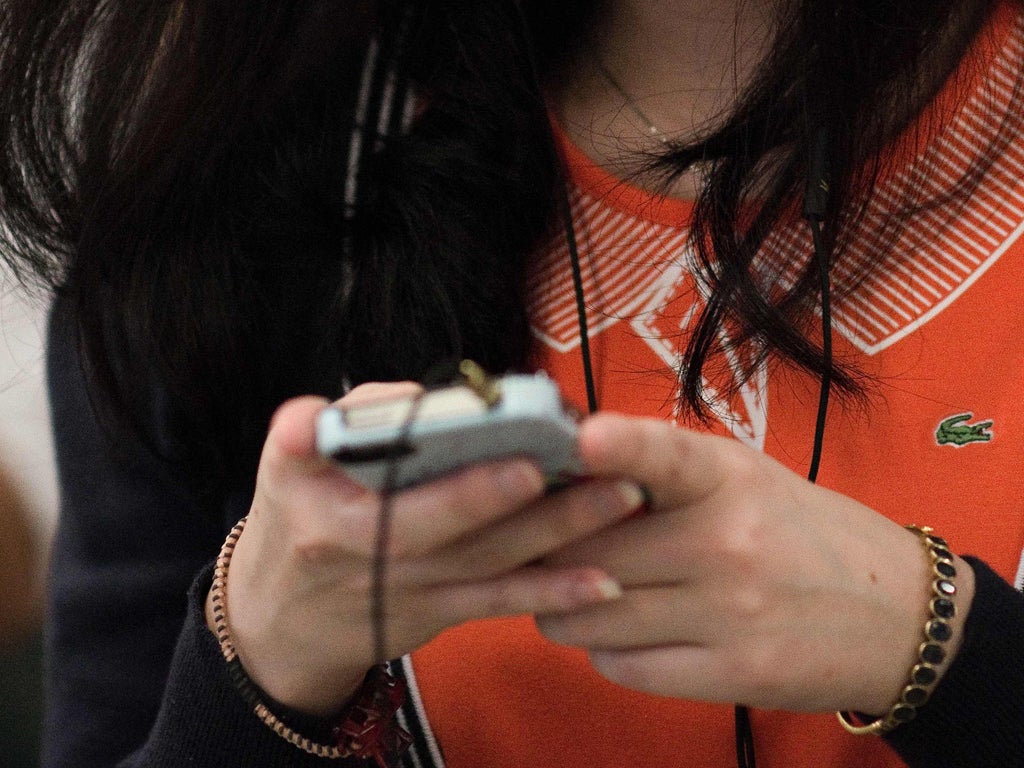Young female victims of gangs don't ‘allow’ themselves to be used
We expect girls to be good, to know better and to stay out of trouble. Why don't we question the self-esteem of those committing the crimes?

Your support helps us to tell the story
From reproductive rights to climate change to Big Tech, The Independent is on the ground when the story is developing. Whether it's investigating the financials of Elon Musk's pro-Trump PAC or producing our latest documentary, 'The A Word', which shines a light on the American women fighting for reproductive rights, we know how important it is to parse out the facts from the messaging.
At such a critical moment in US history, we need reporters on the ground. Your donation allows us to keep sending journalists to speak to both sides of the story.
The Independent is trusted by Americans across the entire political spectrum. And unlike many other quality news outlets, we choose not to lock Americans out of our reporting and analysis with paywalls. We believe quality journalism should be available to everyone, paid for by those who can afford it.
Your support makes all the difference.My 11 year old neighbour just acquired a smartphone. Instantly Instagram-savvy, posting awkward selfies and pictures of cupcakes and animals, dutifully liked by a gaggle of friends identified by their love of Justin, Union J, Jessie J, anyone with a J. Her self-esteem appears bullish, thus rendering her free of the threat of gang-rape by her contemporaries, as apparently only girls suffering lack of self-respect are at risk of being sexually terrorised by their peers.
This week's OCC report highlighted sexual violence among children, and showed girls as young as 11 are victims of ‘punishment rape’ by gangs. Alison Philips, commenting on ITV This Morning on Tuesday, had a theory: we need to teach girls to have more self-worth. “We are talking about girls here who are involved with gangs,” she said of the victims, “so we’ve got to get it into some kind of perspective.” Perspective consisted of the assumption they were girls “probably already in some kind of trouble”, though to me, this infers that increased self-esteem instantly provides a force-field against all that is bad and wrong.
Such views are far from unique: these are ‘those’ sorts of girls. They’ve put themselves at risk, allowed themselves to be used. Remember 15-year-old ‘Suzie’ in Rochdale, forced to have nightly sex with a gang of men yet dismissed for her ‘lifestyle choice’ by agencies unwilling to intervene? Do we really believe the girls the OCC report describes stepped willingly from a life of opportunity, stability and protection into the clutches of nameless, uncontrollable boys to whom they are in thrall? That they are complicit?
The report describes a culture of fear, exploitation, degradation, humiliation and abuse, children exposed to cultural messages perpetuating sexual aggression and ownership. It talks about groups of friends, not only gangs, among whom attacks are happening all over the UK, and about children with “limited availability of choice resulting from their social/economic and/or emotional vulnerability.”
Rather than placing the responsibility on the perpetrators, from whom there may be no escape, the report highlights child protection agencies continuing to describe children as “putting themselves at risk”. This allows us to blame the girls, tut that they should know better and avoid tricky questions, such as why do we express horror but not surprise that boys act this way? If girls don’t have satisfactory levels of self-esteem, why might that be? Do we tell girls who were coerced, threatened or ambushed into unwanted sex how they could have avoided it or do we look at their attackers’ attitudes, motives and access?
Culturally and systemically we lay the blame with the most vulnerable: the girls, especially ‘those’ kinds of girls. We expect girls to be good, to know better and to stay out of trouble, no matter how challenging their circumstances, or we will hold them responsible. Adult responses to sexual crime perpetuate this view, despite almost 10 per cent of women identifying as victims of non-consensual sex in the recent Natsal report, with perpetrators often found close to home.
The boys’ self-esteem isn’t questioned, yet I wonder how many of those boys hate themselves for what they’ve done. Who, children themselves, wish life could have been different, not bought into a system which says brutality rules, sex is a right and a weapon, and girls are there to be used. I’m going into a primary school soon to talk to children of 10 and 11. Apparently I’m there to inspire them (no pressure). I can talk about their value as individuals and how they can learn to express themselves confidently. Is there anything I can say that could stop a gang rape, knowing some there may soon experience it and some perpetrate it, maybe already have? I can try – building self-esteem can apparently make all the difference - but until we start addressing the root issues of culture, lack of options and violence against women and girls I suspect little will change.
Join our commenting forum
Join thought-provoking conversations, follow other Independent readers and see their replies
Comments